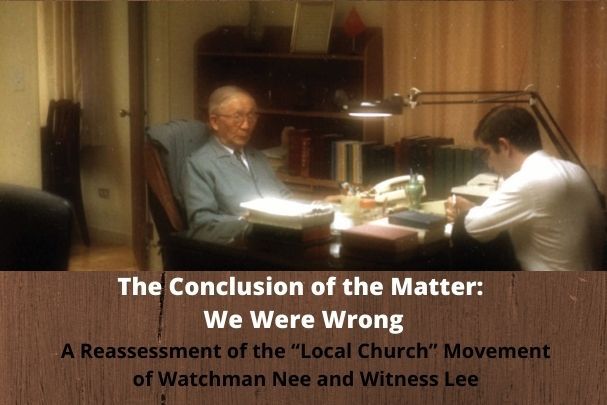This article first appeared in the CHRISTIAN RESEARCH JOURNAL, volume 32, number 06 (2009). For further information or to subscribe to the Christian Research Journal please click here.
In this article I have addressed those aspects of the LC that a leading group of evangelical scholars and countercult workers considered the most egregious, and I have demonstrated that the LC has been grossly misunderstood.
Of course, there are other aspects of the LC’s theology and practice that have been criticized in countercult literature besides those that were mentioned in the Open Letter. It would go beyond the scope and available space of this article to deal with those further areas, but to state our position: we would concur with some of our colleagues’ additional criticisms concerning such areas as (1) the LC’s trichotomous view of human nature, and how that contributes to a more mystical approach to the Christian life than we are comfortable with; and (2) their hermeneutical method, including dispensationalism and a more speculative approach to typology than we are comfortable with. However, none of these areas of LC teaching compromises orthodoxy. Furthermore, the pattern we have seen in this article of critics not probing far enough into LC literature to discern the balancing aspects of their teachings applies to many of these other doctrines as well.
I can easily envision many members of the countercult community responding to this article in the same manner that I responded to Melton’s open letter so long ago: “Surely Miller has it wrong! If only I had time to follow up on this myself.”
It is our prayer that there will rather be an awakening throughout the countercult community to the same issues we have confronted at CRI regarding the LC. These include:
- How important is truth to us? Enough to admit that we were wrong?
- How important is being right with God to us? Enough to ask forgiveness of people we have maligned for many years?
- How important is the love of Christ to us? Enough to embrace in Christian fellowship people who we once distrusted and resented—despite the fact that many cultural and nonessential theological differences still exist between us?
This seems like a critical crossroads for the countercult community. When animus drives ministry decisions and actions, everybody loses. Without an emphasis on restoration and reconciliation and a willingness to confess past sin and error, countercult ministry is not New Testament ministry. Can we rise above a rigidly parochial perspective, see the big picture of how best to extend the gospel and the Kingdom of God in today’s world, and support a vital Christian work in a strategically important part of the globe? The world situation is rapidly changing, with Christianity losing its influence in the West but growing rapidly in parts of the Third World.1 However, in many of those places where evangelical faith is flourishing, “word of faith” and other aberrant Western exports are flourishing right along with it, and Christianity is further compromised by the infusion of pagan folk elements. This is not happening nearly to the same degree in China, and especially not with the LC. They could play an important role in preserving orthodoxy and launching missions well into the twenty-first century and beyond.
Despite our remaining differences with the LC on certain nonessential issues of faith and practice, we are absolutely convinced that our previous assessment of them as an “aberrant Christian group” simply does not do them justice. Although different from what we are used to here in the West, this is a solidly orthodox group of believers.
Elliot Miller is editor-in-chief of the Christian Research Journal
NOTES
- Some may question including China in the “Third World” since it is on its way to replacing Japan as the world’s second largest economy, but as recently as October 2008 on CNN’s Sunday program Fareed Zakaria GPS, Chinese president Hu Jintao declined Zakaria’s characterization of China as a “superpower” and described it instead as a “developing nation.”









